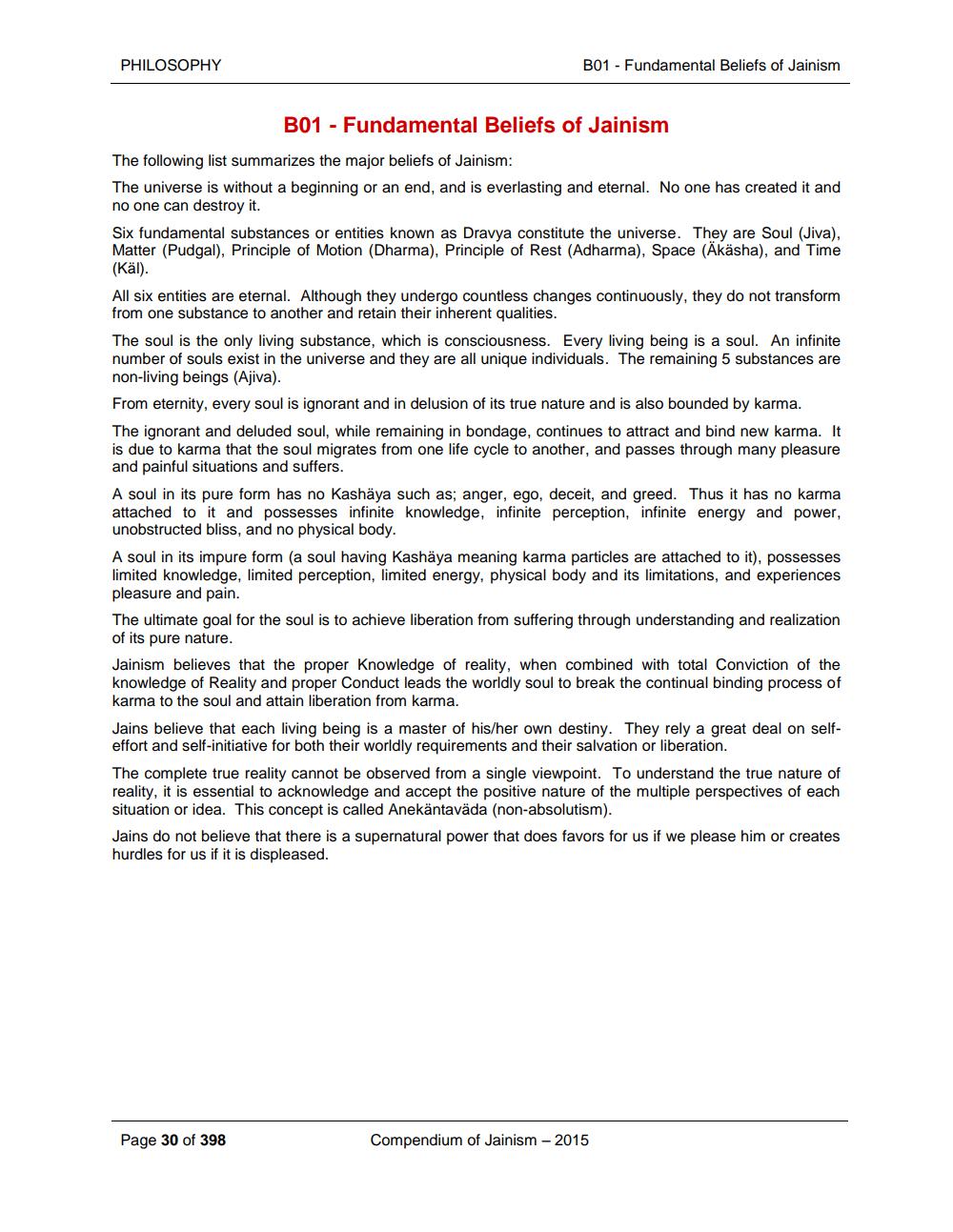________________
PHILOSOPHY
B01 - Fundamental Beliefs of Jainism
B01 - Fundamental Beliefs of Jainism
The following list summarizes the major beliefs of Jainism: The universe is without a beginning or an end, and is everlasting and eternal. No one has created it and no one can destroy it. Six fundamental substances or entities known as Dravya constitute the universe. They are Soul (Jiva), Matter (Pudgal), Principle of Motion (Dharma), Principle of Rest (Adharma), Space (Akäsha), and Time (Käl). All six entities are eternal. Although they undergo countless changes continuously, they do not transform from one substance to another and retain their inherent qualities. The soul is the only living substance, which is consciousness. Every living being is a soul. An infinite number of souls exist in the universe and they are all unique individuals. The remaining 5 substances are non-living beings (Ajiva). From eternity, every soul is ignorant and in delusion of its true nature and is also bounded by karma.
The ignorant and deluded soul, while remaining in bondage, continues to attract and bind new karma. It is due to karma that the soul migrates from one life cycle to another, and passes through many pleasure and painful situations and suffers.
A soul in its pure form has no Kashaya such as; anger, ego, deceit, and greed. Thus it has no karma attached to it and possesses infinite knowledge, infinite perception, infinite energy and power, unobstructed bliss, and no physical body.
A soul in its impure form (a soul having Kashaya meaning karma particles are attached to it), possesses limited knowledge, limited perception, limited energy, physical body and its limitations, and experiences pleasure and pain. The ultimate goal for the soul is to achieve liberation from suffering through understanding and realization of its pure nature. Jainism believes that the proper Knowledge of reality, when combined with total Conviction of the knowledge of Reality and proper Conduct leads the worldly soul to break the continual binding process of karma to the soul and attain liberation from karma. Jains believe that each living being is a master of his/her own destiny. They rely a great deal on selfeffort and self-initiative for both their worldly requirements and their salvation or liberation. The complete true reality cannot be observed from a single viewpoint. To understand the true nature of reality, it is essential to acknowledge and accept the positive nature of the multiple perspectives of each situation or idea. This concept is called Anekantaväda (non-absolutism). Jains do not believe that there is a supernatural power that does favors for us if we please him or creates hurdles for us if it is displeased.
Page 30 of 398
Compendium of Jainism - 2015




